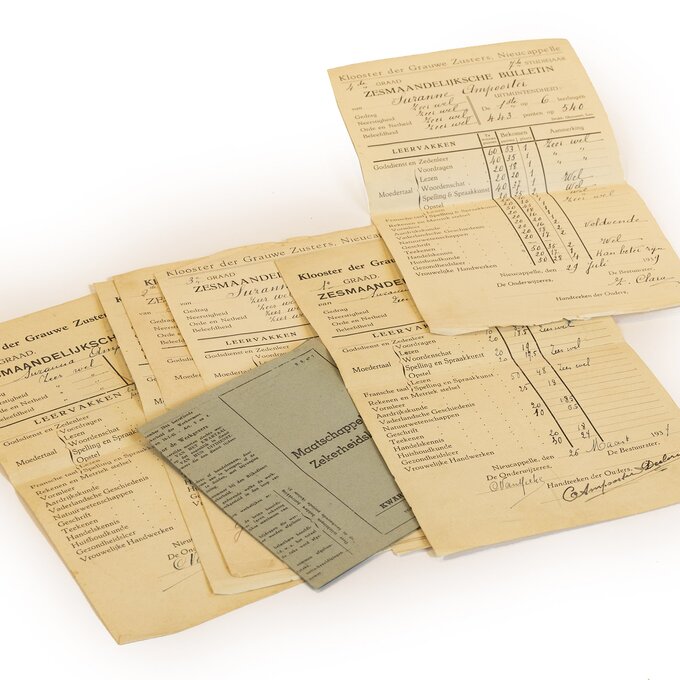Hof der dingen - School notebooks from the Grey sisters

These charming school reports once belonged to Suzy Ampoorter, a young pupil who spent her schooldays at the Grey Sisters’ Convent in Nieuwkapelle, just outside of the city of Diksmuide. Back in those days, school reports weren’t called grades or report cards – in West Flanders, they were known as bulletins.
Before heading off to primary school, children first attended kindergarten. Back then, this had many colourful names: bewaarschooltje, fröbel, papschole, and kakschole.
Now, we know what you might say: you don’t know what any of those terms mean. We’ll try our best to translate them for you or give some necessary context – but be aware: the West Flemish language is not for the faint of heart, and some of them will definitely make you giggle.
Bewaarschooltje: a place where parents could drop off their children, to be kept and guarded when they headed off to work.
Fröbel: This one might refer to the German pedagogue Friedrich Fröbel, who invented the concept of kindergarten and emphasised the importance of self-education and playing for intellectual and social development in young children. The term fröbelen is often used to refer to someone who is working on a creative project.
Papschole: the word pap translates to porridge, and it’s considered to be a quite pejorative term for kindergarten. The word often has a negative connotation, referring to a school where they’re not that strict about education.
Kakschole: kak means poop in West Flemish, and in all honesty, this pejorative term hits the nail on its head, doesn’t it? Children attending kindergarten between the ages of two and four are often not yet (fully) potty trained, which means that the kindergarten teachers regularly need to change diapers. Fun fact: the word bekakt has nothing to do with poo at all, but is referred to someone who acts conceited and snobby.